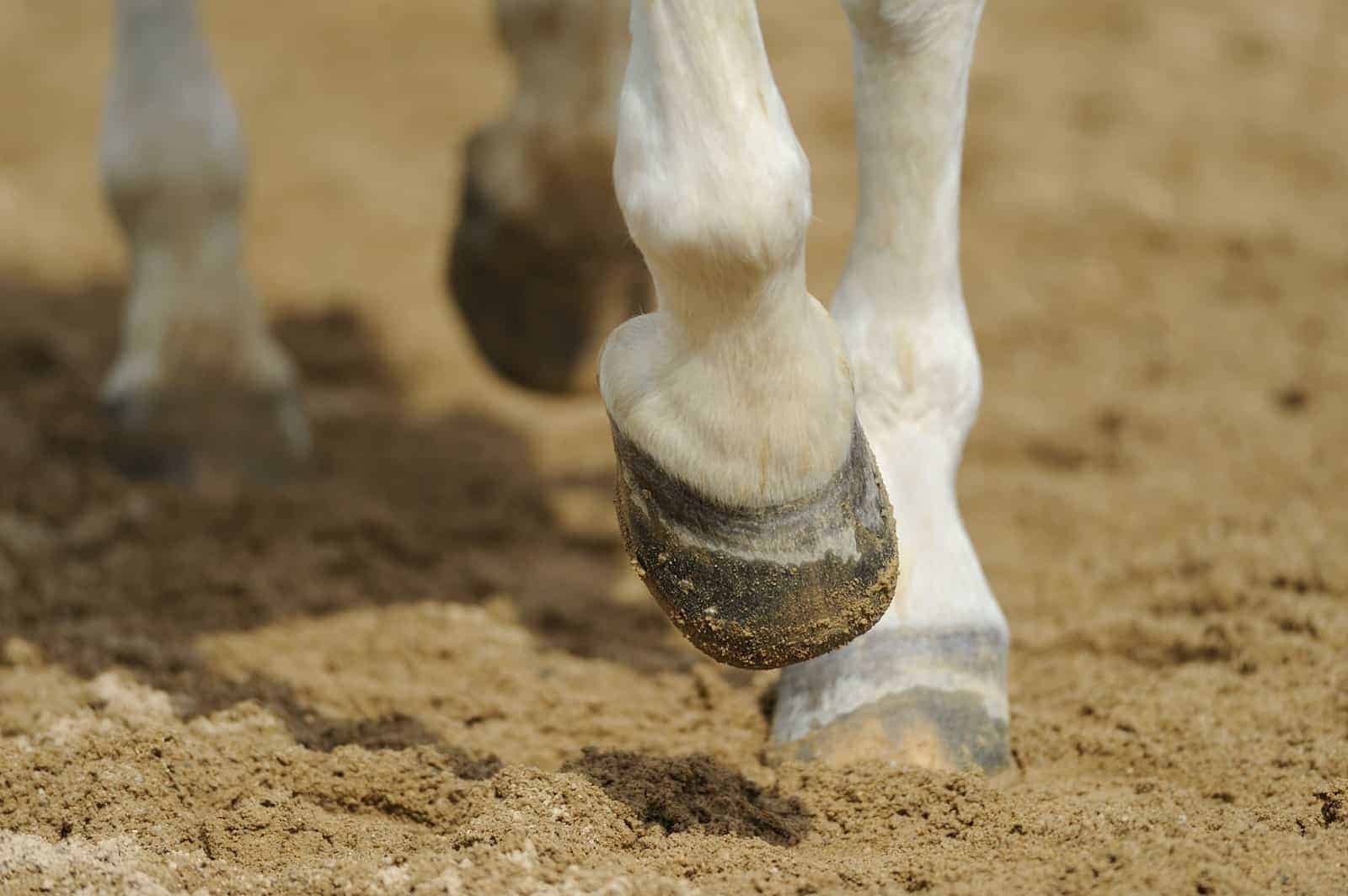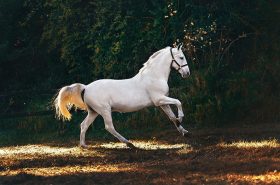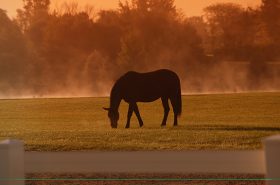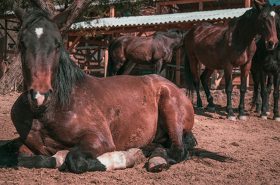It happens to the best of us at least once. The horses Houdini their way into the feed room while everyone else is fast asleep. You wake up the next morning and see the mayhem they caused the night before. Hay bails are torn apart and scattered across the yard, grain bags are torn open and half-eaten, and now your horses are laying down with, from what you can imagine, a massive belly ache. You may even begin to panic because now you’re worried about the side effects of overeating, so let’s discuss the most common one: laminitis.

What is Laminitis?
First off, what is laminitis? Laminitis is a painful condition affecting the tissue that bonds the hoof wall to the pedal bone in the hoof. Laminitis caused by overeating is called “nutritionally induced laminitis”. This means that with a grain overload there’s an overflow of sugar and starch into the hindgut and that is where the trouble begins. Exactly how these hindgut changes cause a restriction in blood supply and inflammation of the laminae in the hoof remains unknown.
Horses who have experienced a grain-related binge can successfully be treated with laxatives, mineral oil, and anti-inflammatories. It is important to remove them from the source of feed and quickly assess how much they have consumed.
Preventative Measures
With laminitis, it’s important to note the horses’ baseline temperature and pulse in their hooves. This way you are able to know if any changes occur later on. If you don’t see any current signs of laminitis but want to prevention measures, soak the horse’s hooves and lower limbs in ice water for as long as possible over the following days. This will help to prevent laminitis. Research has shown that this method is effective for up to 48 hours without there being damage to the tissue.
If you begin to notice any abnormal behaviors or stances (swaying back and forth) in your horse, you should call your veterinarian immediately for additional assistance.
Have you experienced a grain overload situation with your horse before? If so, what did you do? I’d love to hear what you have to say!
Love this blog post? We think you will like Helping to Prevent Winter Laminitis by Casie Bazay.



